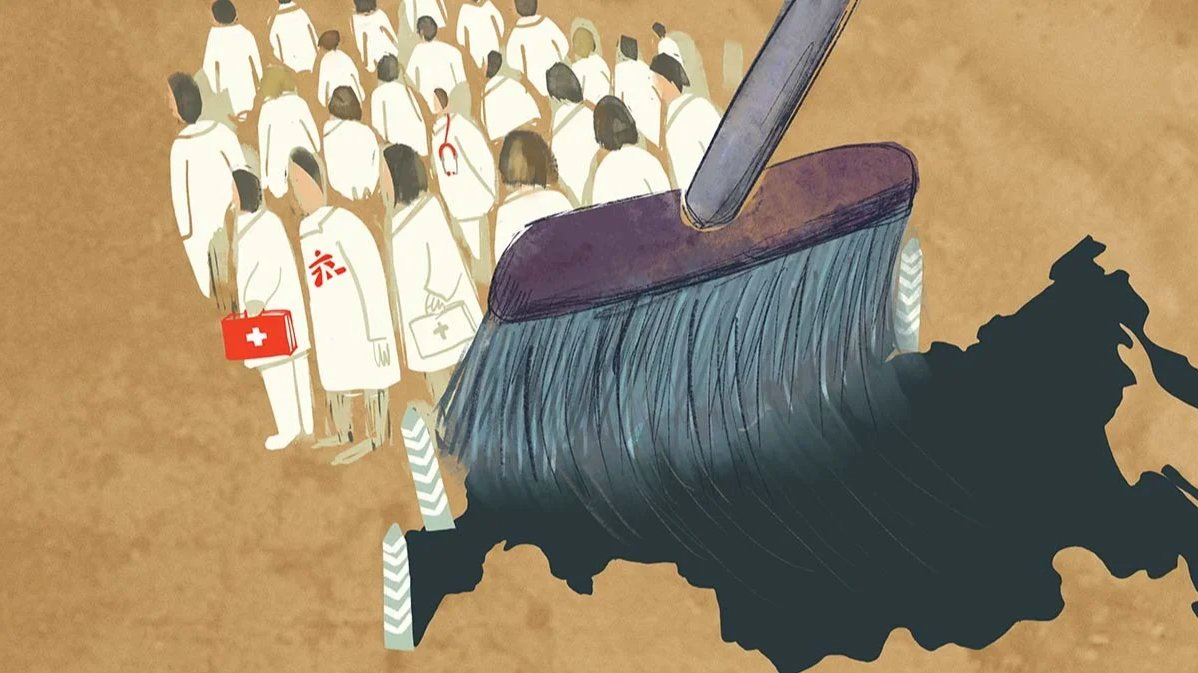International charities have played a vital role in Russia over the past century, often providing those in need with assistance that their own state was unable to offer, whether it be food, medicine or clothing. Indeed, even by the most conservative estimates, international organisations have been responsible for preventing multiple humanitarian catastrophes in the country.
However, the very NGOs that have done so much for Russia in the past find themselves increasingly accused of being “enemy networks”, “Western agents”, and “destructive entities” by Russian state media and pro-Kremlin propagandists, who appear keen to erase the vital assistance they have historically provided from Russia’s own history books.
Last month, amid an ever more stifling political climate, Médecins Sans Frontières (MSF), known in English as Doctors Without Borders, one of the many non-governmental organisations that have played such an active role in helping Russia overcome some of its gravest challenges, was effectively squeezed out of the country.
Assisting the enemy
The first major international initiative to provide Russia with aid was undertaken by the American Relief Administration (ARA) in the years following Russia’s Civil War. At the time, the newly-created Soviet Union was in dire straits, and the ARA went on to supply almost 90% of all overseas aid to Soviet Russia during the 1920s, saving the country from famine and epidemics.
The ARA mission was led by future US president and outspoken anti-communist Herbert Hoover, who believed that supplying Eastern Europe with food was a weapon against Bolshevism. Hoover was always careful to distinguish between the Soviet system and those starving people forced to live within it.
In 1923, Soviet newspaper Izvestia reported that in the two years of ARA’s mission in Soviet Russia it had managed to feed 11 million people in some 28,000 towns and villages, as well as repair 15,000 hospitals and vaccinate 10 million people against epidemic diseases.
If ARA staff in Soviet Russia in the 1920s were accused of being spies and suspected of having a hidden agenda — much like those who work for foreign NGOs in today’s Russia — the ARA also fared little better back in the US, where the organisation was accused of “stealing” money to feed “Russians who chose Bolshevism”.
Two decades on, as Stalin unleashed his purges and famine raged, ARA staff in Russia had been rendered invisible.
Two decades on, as Stalin unleashed his purges and famine raged, ARA staff in Russia had been rendered invisible, with Izvestia never again making any mention of the organisation’s work since those reports from the early 1920s, and most Soviet citizens having no idea that a foreign relief mission had ever even existed in the country.
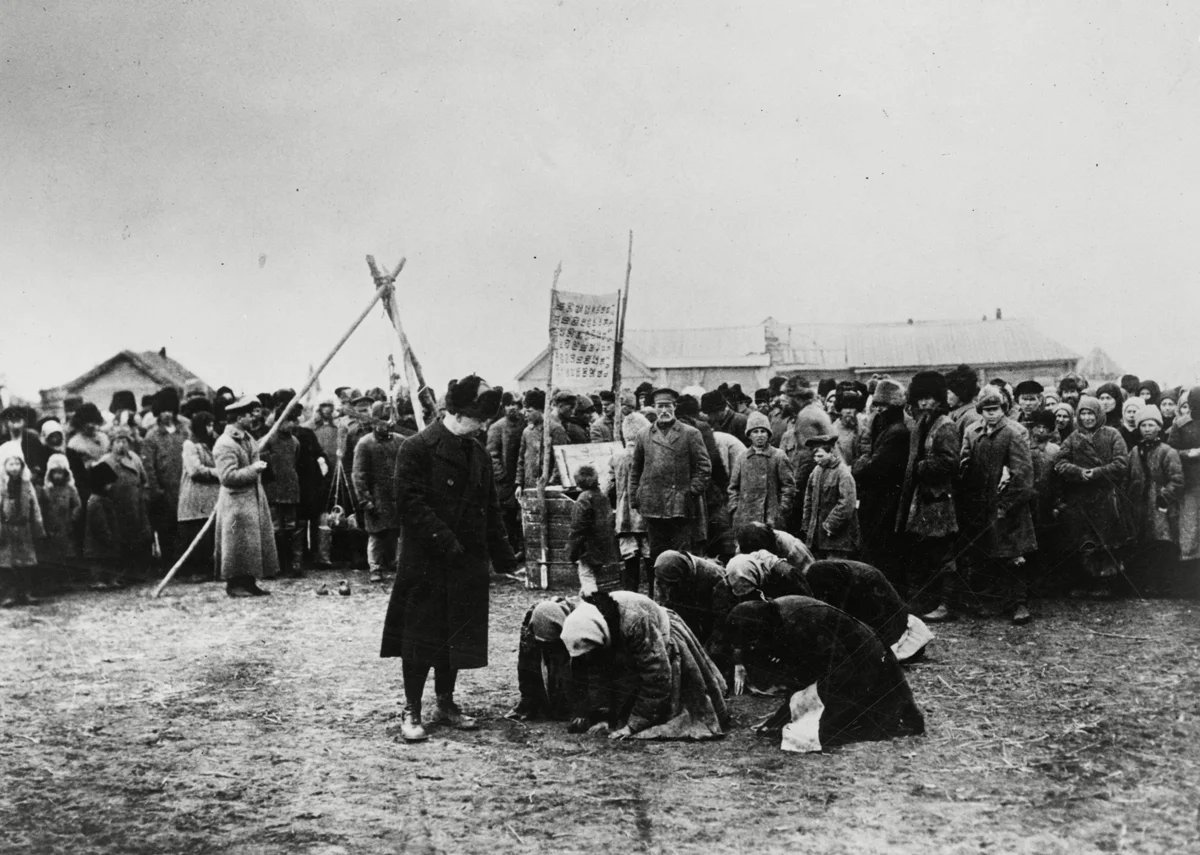
ARA staff feed starving people during one of the many famines in Soviet Russia, 1922. Photo: Universal History Archive / UIG / Shutterstock / Vida Press
The next chapter in US support for Russia was the Lend-Lease Act, which was introduced during World War II to supply the Soviet Union with food, oil and materiel worth the equivalent of €135 billion in today’s money. Despite the act’s name, the aid was not loaned but donated, the logic being that the success of America’s allies in the war against Nazi Germany was central to US security.
A whole half-century of the Cold War would pass before the US provided humanitarian aid to Russia again, this time in the early 1990s, during the Soviet economic collapse that followed Mikhail Gorbachev’s twin policies of glasnost (transparency) and perestroika (restructuring). On 10 February 1992, the US launched Operation Provide Hope, which delivered aid to all the newly independent countries of the former USSR.
Back in the 1990s, deliveries of tinned meat, biscuits, flour and infant formula literally saved millions of vulnerable lives.
Back in the 1990s, deliveries of tinned meat, biscuits, flour and infant formula literally saved millions of vulnerable lives, especially those of orphans and people living with disabilities. In total, about 114,000 tonnes of food aid were delivered in 1992, while by 1993, that figure had grown to 3 million tonnes.
However, as the distribution of aid was managed by Russian officials, the abuse of power and outright theft that were already endemic in the country became commonplace, and there were cases of officials using the donated goods to pay their employees’ salaries, making their employees buy the supplies, or forcing hospitals to pay for medicines that had been donated.
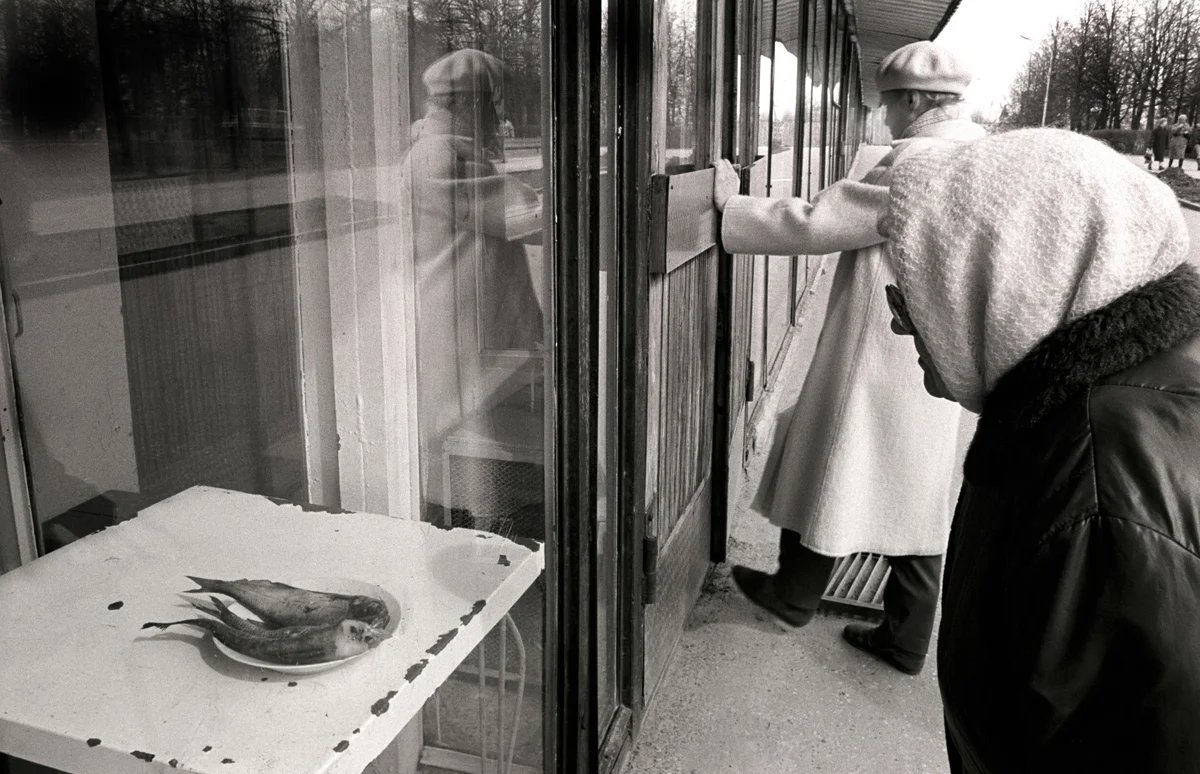
A grocery store front in Veliky Novgorod in northern Russia in the 1990s. Photo: Neil Pattison / Alamy / Vida Press
In the 1990s and 2000s, the US also made commercial food shipments — this was when frozen chicken thigh quarters, known colloquially as “Bush legs”, became available in shops across the former Soviet Union, replacing the emaciated bluish poultry that Soviet people had come to expect. The sale of affordable chicken was made possible by a trade agreement signed by Mikhail Gorbachev and George W.H. Bush in 1990. For many years, “Bush legs” were a staple in the diet of post-Soviet countries.
In 1999 and 2000, the volume of food aid from the US and EU to Russia was greater than the aid provided to the whole of Africa.
Today, Putinist propaganda conflates commercial supplies and humanitarian aid, portraying both as opportunistic, low-quality, and humiliating. The “Bush legs” get an especially bad rap, portrayed as hormone- and antibiotic-laden poultry that Americans themselves would not eat. In fact, the US banned the use of hormones in poultry farming in the 1970s, while Russian poultry farms in many cases continued to use antibacterial drugs for disease prevention.
Humanitarian aid programmes to the former Soviet Union lasted until the mid-2000s, with the last delivery being made in 2007. The US was the top provider of aid, but other current “enemies” — the UK, Germany, and Japan — also did their bit.
In 1999 and 2000, the volume of food aid from the US and EU to Russia was greater than the aid provided to the whole of Africa. Private US foundations also chipped in — most notably the George Soros Foundation, which the Kremlin expelled in 2015 for being an “undesirable organisation”, accusing it of “threatening Russia’s constitutional order and state security”.
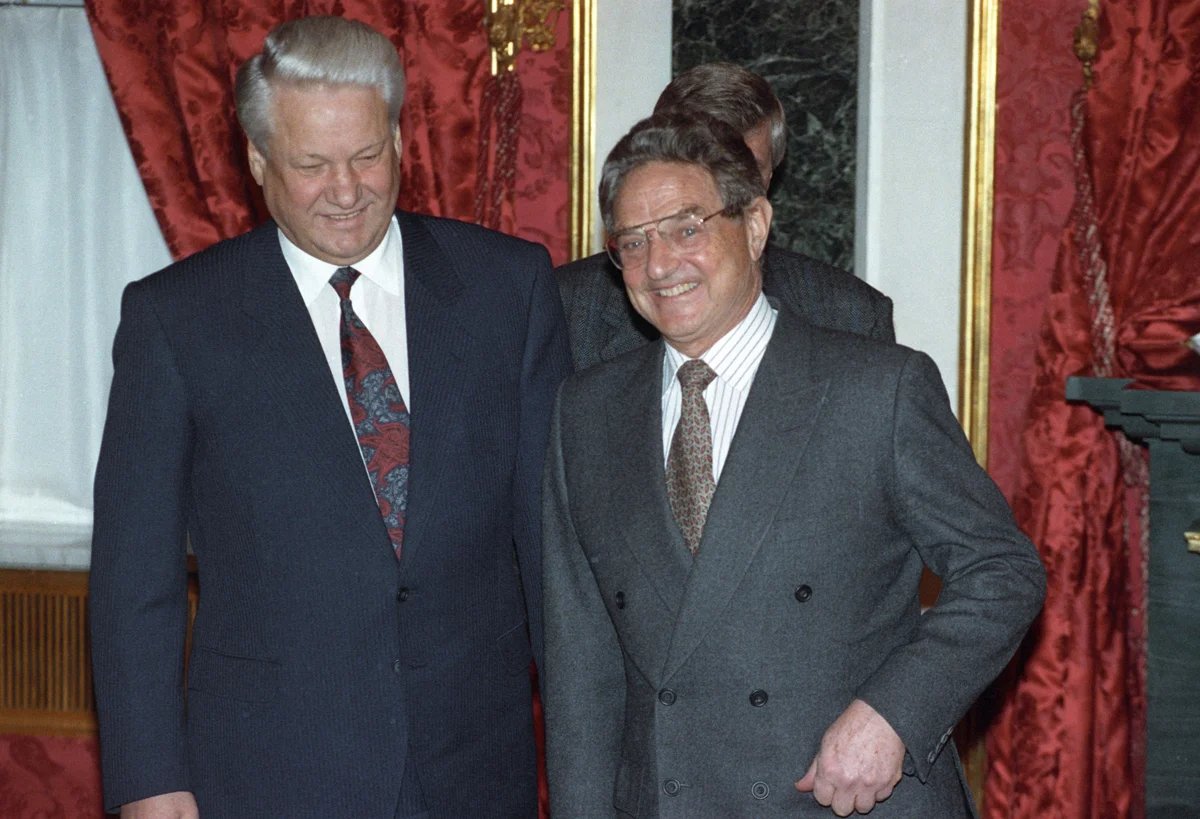
Boris Yeltsin with George Soros in the Kremlin, Moscow, 10 January 1993. Photo: Gennady Galperin / Reuters / Scanpix / LETA
MSF in Moscow
Médecins Sans Frontières (MSF), known in English as Doctors Without Borders, was one of the first international medical NGOs to work in Russia after the collapse of the USSR. Founded in Paris in the early 1970s by a group of French doctors and journalists, the organisation’s stated mission has always been to help those affected by armed conflict, epidemics and natural disasters.
When MSF began its work in Russia in 1992, it focused on helping the country’s growing homeless population. MSF staff would regularly go to Moscow railway terminals and other places with a high concentration of homeless people to provide them with medical assistance, helping those who needed it to be hospitalised, to go to hospices or whatever other social facilities they required, and assisted the undocumented to get issued with the necessary papers.
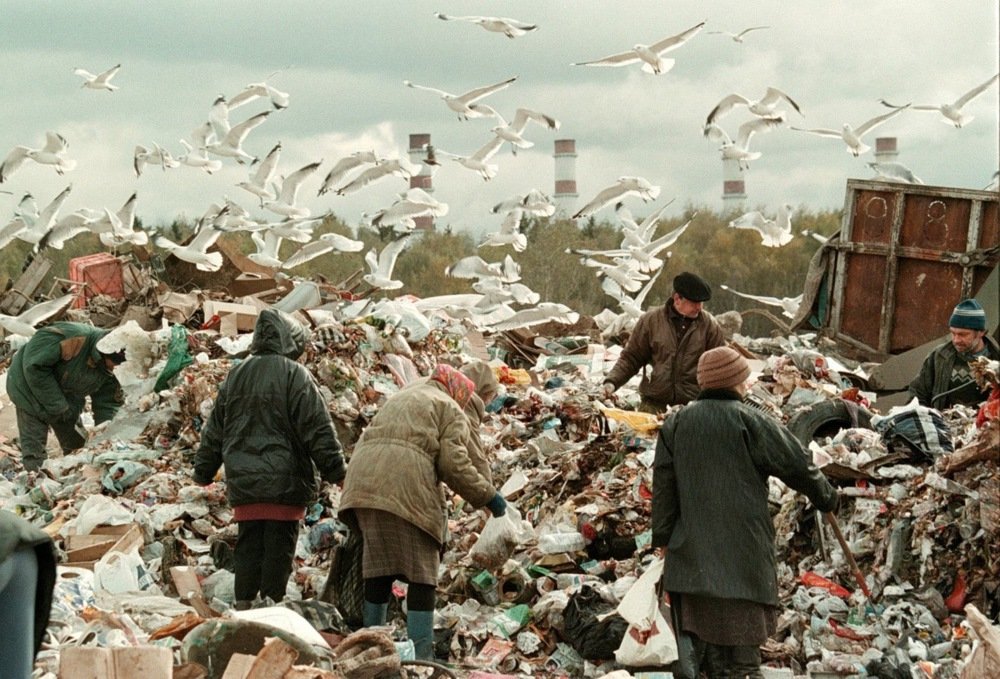
Homeless people scavenge for food at a rubbish dump on the outskirts of Moscow, October 1998. Photo: EPA-PHOTO/EPA/SERGEY CHIRIKOV
MSF spent nine years lobbying Moscow officials to create a municipal service to help the capital’s homeless, efforts which ultimately bore fruit under then-Moscow Mayor Yury Luzhkov, who also introduced salary bonuses for those treating the homeless in social and medical facilities.
During the first Chechen War (1994–96), MSF employees provided medical care and humanitarian aid to civilians inside Chechnya as well as to refugee camps in neighbouring republics. During the Second Chechen War (1999–2009), MSF demanded that the authorities grant them access to the capital city of Grozny, which experienced intense fighting with many civilian casualties, and condemned the Russian military’s widespread use of violence against civilians.
For several years after the hostilities ended, MSF worked with displaced Chechens in Ingushetia. Later on, the mission concentrated its medical work in Chechnya, with a special focus on women and children.
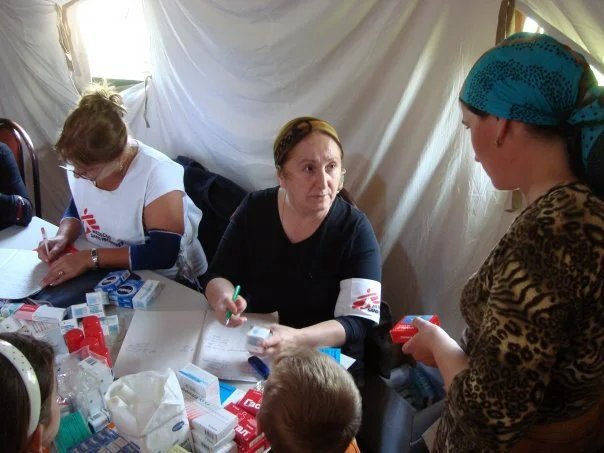
An MSF team provides aid to victims of the October 2008 earthquake in Chechnya. Photo: MSF / VK
Nobel cause
MSF won the Nobel Peace Prize for “pioneering humanitarian work” on several continents during the Second Chechen War in 1999. Addressing members of the Nobel Committee after accepting the award, MSF International Council president James Orbinski criticised the Russian authorities and called on Russian President Boris Yeltsin to stop bombing defenceless civilians in Chechnya.
“The people of Chechnya — and the people of Grozny — today, and for more than three months, are enduring indiscriminate bombing by the Russian army. For them, humanitarian assistance is virtually unknown. … If conflicts and wars are an affair of the state, violations of humanitarian law, war crimes and crimes against humanity apply to us all,” Orbinski said in his Nobel acceptance speech.
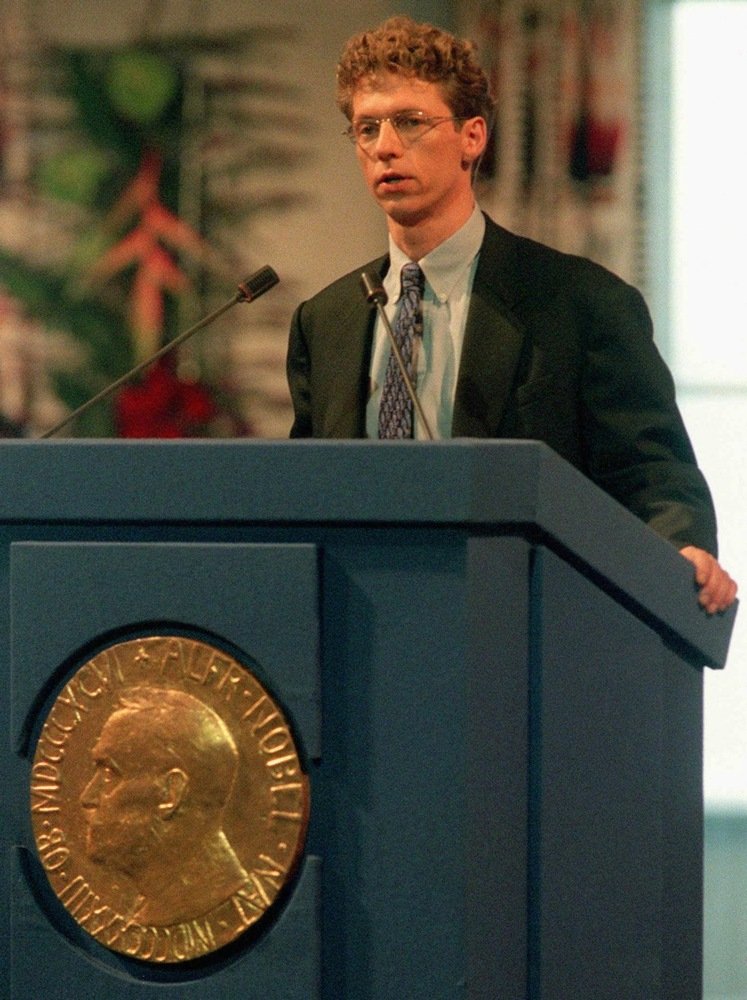
James Orbinski delivers his acceptance speech in Oslo after MSF won the Nobel Peace Prize in December 1999. Photo: EPA PHOTO SCANPIX/POOL/JON EGG
“Silence has long been confused with neutrality, and has been presented as a necessary condition for humanitarian action,” he continued. “From its beginning, MSF was created in opposition to this assumption. We are not sure that words can always save lives, but we know that silence can certainly kill.”
In addition to Chechnya, MSF has worked extensively in Ingushetia and Dagestan, supplying hospitals with medicine and providing medical assistance to the population, including refugees.
In 2001, the head of the MSF mission in the North Caucasus, US national Kenneth Gluck, was kidnapped in Chechnya and held captive for a month. In 2002, the head of the mission in Dagestan, Dutch citizen Arjan Erkel, was also kidnapped by unknown armed men. Erkel was not released until two years later.
MSF suspended its work in both regions on security grounds shortly afterwards.
Another issue that MSF’s mission in Russia had fought against was the spread of tuberculosis and HIV in prisons. In the mid-1990s, Natalya Vezhnina, the medical head of the Mariinsky prison hospital in the Kemerovo region of Siberia, complained at a conference in Europe that she was tired of burying her prisoners, who were dying every day.
After that, MSF sent a request to Russia’s Federal Penitentiary Service and were granted permission to visit Vezhnina’s hospital, where they launched a programme to treat drug-sensitive tuberculosis in prisons.
Within a few years, MSF had established a system of tuberculosis detection and uninterrupted treatment for inmates all across the country.
MSF began supplying Russian detention facilities with medicine and introduced a practice that has since been officially adopted by the Russian authorities, namely that a new prisoner will not be placed in contact with other inmates until a medical examination has been carried out. Within a few years, MSF had established a system of tuberculosis detection and uninterrupted treatment for inmates all across the country.
A new war
Amid the beginning of a new war in eastern Ukraine in 2014, MSF began working in the self-proclaimed “people’s republics” of Donetsk and Luhansk. A year later, the authorities in both separatist regions stripped the organisation of its accreditation after accusing it of illegally supplying psychotropic drugs as well as “conducting espionage” and engaging in “the deliberate social disorientation of citizens during psychological sessions”.
MSF vehemently denied the allegations, and pointed to the fact that it had supplied medicine to 170 hospitals in the “Donetsk People’s Republic” (DPR) and provided medical care to over 8,000 wounded civilians. But despite its efforts, MSF was unable to get its accreditation restored. To this day, the International Committee of the Red Cross (ICRC) is the only international NGO that has permission to work in the DPR.
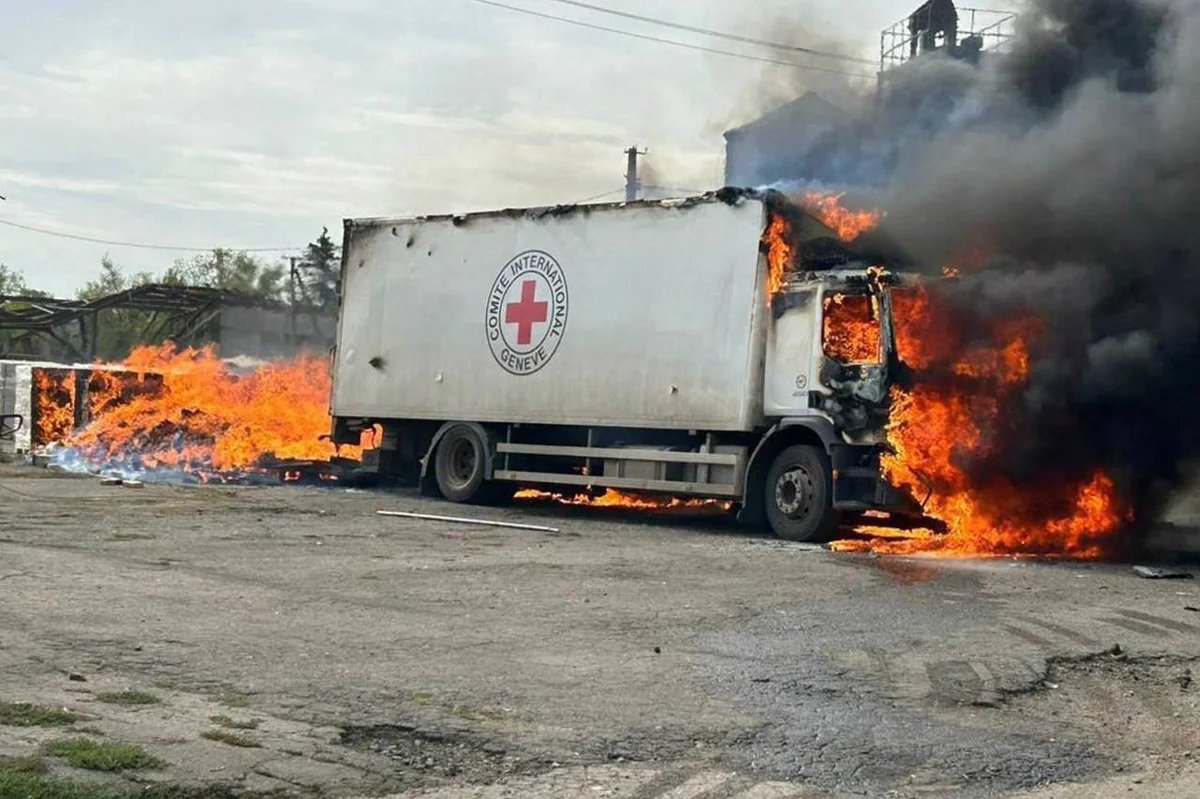
A truck with humanitarian aid from the International Red Cross, Donetsk region, Ukraine, 12 September 2024. Photo: press service of the Prosecutor General of Ukraine / Telegram
In 2022, following Russia’s full-scale invasion of Ukraine, MSF sent a mission to help the country’s civilian population, aiding displaced Ukrainians in Russia as well as the residents of Russia’s border regions that had been affected by shelling.
In September 2024, after 32 years of work in Russia, MSF announced it had decided to wind down its operations in the country after receiving notice from the Justice Ministry in Moscow that the organisation had been excluded from the register of representative offices of non-profit entities, a move that effectively made it illegal for MSF to operate in Russia. There has still been no official explanation for the Justice Ministry’s decision.
One possible reason for MSF’s expulsion could be the work the organisation does in Ukraine and the fact that its head has held in-person meetings with the Ukrainian authorities. However, MSF has unsuccessfully requested similar meetings with the Russian authorities multiple times since the full-scale war began. Instead, the Russian state has got rid of the last major international aid organisation that has been helping its citizens.
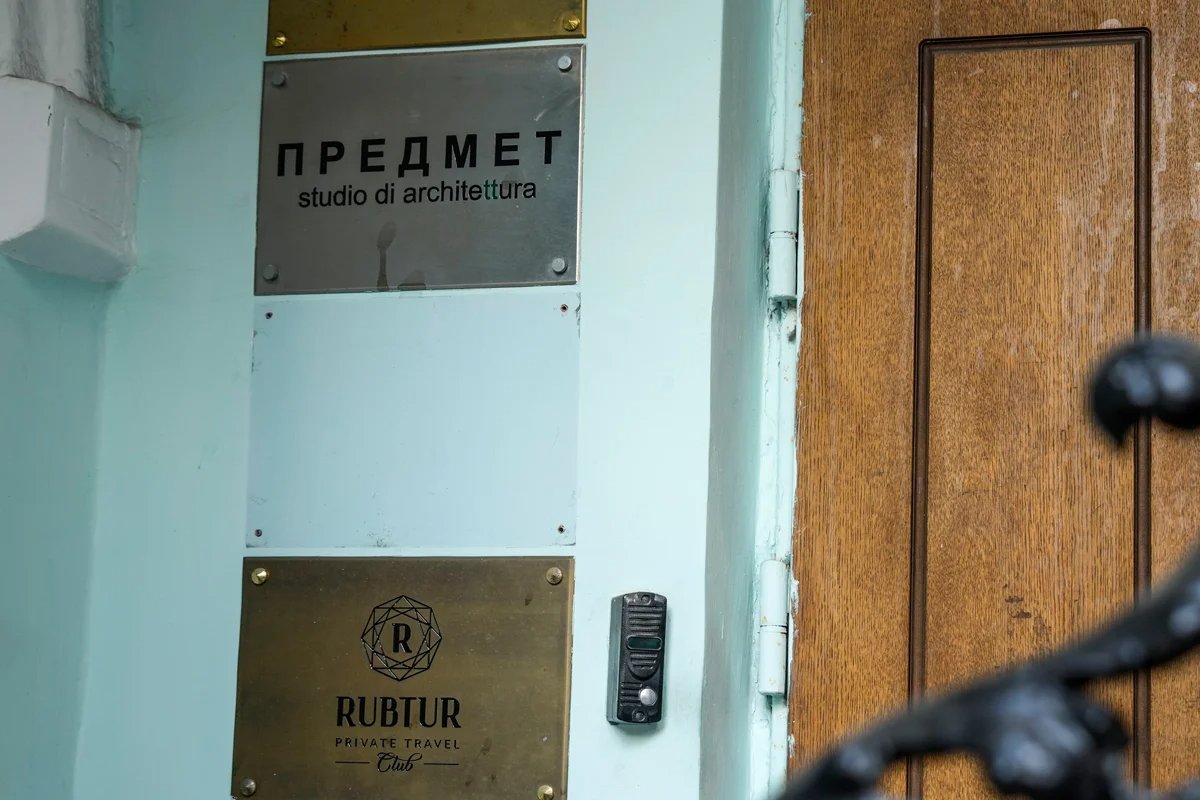
A view of the former MSF office in Moscow, where a sign with its name used to hang, 17 September 2024. Photo: Alexander Zemlyanichenko / AP Photo / Scanpix / LETA
“We are very sad to conclude our programmes in the country as many people in need of medical and humanitarian assistance will now be left without the support we could have provided to them,” MSF’s Russia operations manager Norman Sitali said, adding that “MSF would like to still work in Russia again, if and when possible.”
It appears that years of donating food, medical supplies, and other humanitarian aid can quickly be forgotten as it is erased from the history of post-Soviet Russia’s relations with the West. Russian propaganda has successfully devalued and silenced any information about it.
Now rewritten, Russian history textbooks label international NGOs as enemies and foreign agents, while their authors neglect to explain why the country’s foes would have spent so much of their own money and committed so many of their own resources to save millions of Russian lives.
Join us in rebuilding Novaya Gazeta Europe
The Russian government has banned independent media. We were forced to leave our country in order to keep doing our job, telling our readers about what is going on Russia, Ukraine and Europe.
We will continue fighting against warfare and dictatorship. We believe that freedom of speech is the most efficient antidote against tyranny. Support us financially to help us fight for peace and freedom.
By clicking the Support button, you agree to the processing of your personal data.
To cancel a regular donation, please write to [email protected]
